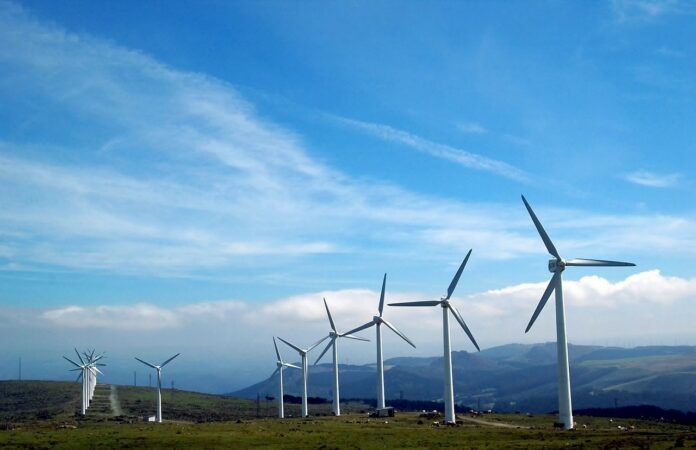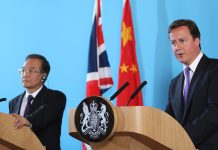Today, what makes powerful companies is their commitment to sustaining the earth’s resources. Certainly, North West companies are powering the Green Revolution in the hopes of becoming the UK’s first net-zero carbon emissions region by 2040.
This goal of becoming a sustainable corporation lies in assessing corporate sustainability in this green industrial revolution. It’s not a secret that corporations are responsible for emissions, in fact, the Guardian reports that 100 companies are responsible for 71% of total carbon emissions globally.
How can companies enact corporate sustainability in the green industrial revolution? Moreover, how can North West companies do so with international cooperation and partnership? How can the Northern Powerhouse lead the country in the Green Industrial Revolution with the switch to renewable energy?
The COP26 Initiative By the United Nations and International Cooperation
COP26 is the United Nations Committee Summit on Climate Change, in Glasgow, this October and November, and is the 26th climate change “conference of parties” to occur in the world. It has all the world leaders in one place, with the exception of China, Russia, Brazil and the Philippines. The first COP1 meeting took place in Berlin, Germany in 1995.
This meeting is hosted by the UK in partnership with Italy, and is meeting in order to have the mitigating effect of limiting global emissions that drive climate change. To have a chance of limiting warming to 1.5 degrees, global emissions must be reduced to one half by 2030, and reach a net-zero level by 2050.
The gravity of the situation is that it may not be enough to reduce by one half, as an extra 1.5 degrees of extra heating will destroy many countries, if not the world, including island nations from rising sea levels and heat. The way the world looks now, global warming will destroy the world at level 3 due to emissions. Read more about ominous prospective climate facts here.
Thus, far some of the contentious debate started with:
- the USA agreeing to cut emissions by 30% starting now
- the agreement to end deforestation and start to reforest the world again
- India agreeing to net zero by 2070
- the UK committing to net zero much earlier
The UK’s overall impact on emissions is only 2% of global emissions thus far, though having instigated the industrial revolution, it is apt that we act to lead the world out of fossil fuel dependency.
According to the Parliamentary Library, “Estimated UK greenhouse gas emissions have fallen by 49% between the 1990 baseline and 2020…Half of the total cut in emissions since 1990 were from the energy supply sector (mainly power generation). Gas replaced coal for electricity generation during the 1990s, renewables (especially wind) grew in the 2010s and coal use has fallen further in recent years to just 2% of generation…There was a larger percentage cut from waste management (71%), with smaller falls from business (32%) and the residential sector (14%). Emissions from transport hardly fell.”
The North West, specifically, is the manufacturing center of the UK, producing 40 million tonnes of carbon dioxide every year, and produces 40 million tonnes of carbon dioxide (CO2) every year.
However, on the other side, it also has the highest concentration of manufacturing and chemical waste from the UK. It is also the only region with all the elements required to deliver low carbon emissions, with renewable energy, carbon capture and storage, hydrogen, and smart grids and nuclear.
The Use of Translation For the North To Take Off In Reducing Emissions
Ofer Tirosh, CEO of Tomedes, a translation services company with interpreters for the UN, believes that the COP26 meeting could not have been done without the help of linguists from the language service sector. The language barriers that exist in meetings such as this CO26 only delay the possibility of a global conversation about climate change between world leaders. Neither can the education of climate change go about throughout the world without the help of linguists.
Also, within the North West, certain steps must be taken to cater to the populace or workers in the areas responsible for carbon emissions. According to the Immigration Observatory, Manchester had the highest number (127,061) as well as the highest population share (25%) of non-UK born residents in the region. The metropolitan county of Greater Manchester is home to 56% of the foreign-born residents of the North West.
That means not only is the North West an area of manufacturing, it also is an area of foreign-born immigrants who perhaps work in manufacturing. However the fact remains the same, from the source Immigration Observatory above: “Among those residents of the North West who did not select English as their main spoken language in 2011, 76% spoke English very well or well. 20% reported not being able to speak English well and 4% reported they couldn’t speak English at all (1% and 0.2% of all residents above the age of 3 respectively).”
There is a fraction of the population that is non-English speaking, who may not know the terminologies of climate change. Translation services, especially for climate change, know that climate change activists will not just affect those few leaders in the COP26, but the whole world.
The onus on climate change education starts with the reality of language. While the UK is actively fighting carbon emissions, there is more to do to educate all on COP26 goals, and the overall goal of fighting rising CO2 levels. Innovation already exists for Manchester businesses, now we must move on to innovating in climate change education through language.
In Closing
North West corporations must access their sustainability efforts, as well as climate change education for their workers, especially in their global communications.
Says Tirosh, “So one of the main areas of focus in climate change mitigation is generating awareness and promoting effective environmental practices and climate change adaptation policies in these vulnerable regions. To complicate things further, these regions are one of the most culturally and linguistically diverse areas on Earth. This leads us to this question; how can we foster productive climate change communication between culturally and linguistically diverse regions and to ultimately give them a chance to be heard on the world stage?”
The path to net-zero, with translation services breaking down barriers and improving understanding, seems clearer with the goal of financial and international needs for action and cooperation.







